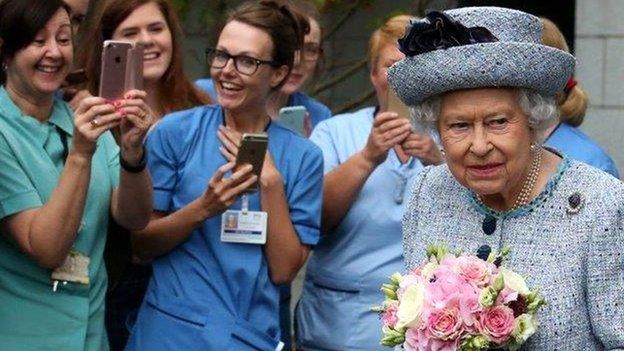Virtual reality therapy trial to be rolled out across UK
- Published
VR therapy reduces pain levels and blood pressure, helping residents relax
A pioneering virtual reality therapy trialled at a neurological care centre in Aberdeen is to be rolled out across the UK, BBC Scotland has learned.
The charity Sue Ryder said there is evidence that the immersive technology can reduce blood pressure and pain levels among residents using it.
Its Aberdeen centre supports people with conditions including cerebral palsy, MS and motor neurone disease.
It also helps those with brain injuries.
The technology allows residents to "immerse themselves in a world they choose", such as being on a beach, sky diving or scuba diving.
They use a headset with viewing goggles and headphones.
'Less agitated'
Therapists at the centre say the new therapy is having a dramatic effect on those using it.
They have noted marked reductions in blood pressure and pain levels, and say residents are less agitated and more relaxed.
The charity believes the effects last for several days.
The technology is now being rolled out across Sue Ryder's network of neurological centres across the UK.
One 65-year-old resident with MS told BBC Scotland the virtual reality experience was "terrific" and that "it's somewhere I could not go in a wheelchair".
The resident added: "The sea lapping at my feet feels so good, I feel like kicking off my shoes."
'Hugely significant'
Louise Torrance, head of care at Sue Ryder in Aberdeen, said: "Within seconds of [the equipment] being on, people were more relaxed.
"About 75% of people saw blood pressure decrease - a couple increased as they were so excited.
"They have got freedom as they can choose where to go. It's something to look forward to.
"It's hugely significant. They are talking about it with other residents and their families. Once that is rolled out it will have a huge impact."
- Published12 July 2018

- Published29 September 2017
